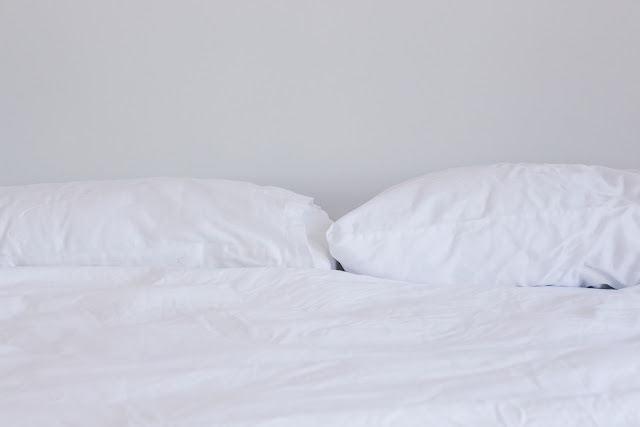7 Natural Remedies for Better Sleep
by Kay Carter
According to the
CDC, more than a third of American
adults are not getting enough sleep on a regular basis. This lack of sleep
(less than seven hours per day) is associated with an increased risk of
developing chronic conditions such as obesity, diabetes, high blood pressure, heart
disease, stroke, and frequent mental distress. Here are seven natural remedies
that can help you get better sleep.
1.
Having a consistent bedtime routine
To prepare your mind for sleep, develop a
consistent routine that starts about an hour before your designated bedtime.
This routine can include dimming the lights in your bedroom, soaking in a warm
bath, lowering the bedroom temperature, and sitting down with your favorite
book. Whatever your routine, make sure you follow it every night to get into a
consistent habit of preparing for bed.
2.
Aromatherapy
Aromatherapy is a holistic healing
treatment that uses essential oils to boost one’s mood, promote relaxation, and
improve overall health. Some people use aromatherapy as a way to relax and
prepare for bedtime. Several essential oils like lavender, vanilla, and jasmine are most effective in
helping people fall asleep.
3.
Daily exercise
Being physically
active during the week can help you fall asleep more easily at night.
Incorporate an evening walk after work or schedule a yoga workout in the
morning. If you need external stimuli to help motivate you to work out, sign up
for a Pilates or cycling class or have a friend be your workout buddy.
4.
A balanced diet
The foods we
consume can have an impact on our sleep. For example, turkey, cheese, and almonds contain
Tryptophan, an essential amino acid that helps with sleep. Having a diet low in carbs and high in protein
can also ensure a more restful sleep. Limit your intake of caffeine,
alcohol, and nicotine and try to avoid caffeine after certain times in the
afternoon as it will impact your ability to fall asleep. You may also want to
avoid sugar as it causes uneven blood sugar levels and results in restless
sleep.
5.
Creating a peaceful sleep environment
Having an
abundance of distractions in your bedroom can lead to interrupted sleep cycles
and poor sleep hygiene. Remove any clutter that’s causing you stress—this could
be the stack of bills that are sitting on your desk waiting to be paid or the
pile of clothes you have strewn across the floor. After removing the clutter,
see if you can remove other distractions that involve noise and light. If you
have a faulty appliance that constantly makes noise, make the necessary repairs to
ensure a more restful sleep. If you have lights that are too bright or flash
constantly, swap them out for dimmer lights.
6.
Limiting technology use before bed
According to Harvard Medical School, blue light
wavelengths produced by electronics and overhead lights boost attention,
reaction times, and mood. While this is great for the daytime, it can be an
issue at night when the body is attempting to fall asleep (exposure to blue
light suppresses the production of melatonin). Remove all electronic devices
such as TVs, computers, smartphones, and tablets from the bedroom to remove the
temptation to scroll mindlessly late into the evening.
7.
Drinking a cup of tea
There are several herbal tea options
available that can enable sleep: these include Chamomile, Lavender, Melatonin,
Kava, Passion Flower, and more. Since certain herbs can have effects on the
body, be sure to check with your doctor before consuming herbal remedies.

Comments